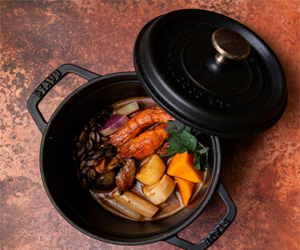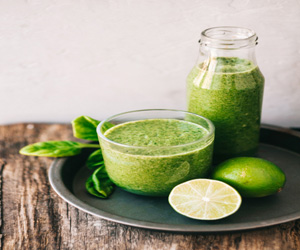


A Recipe For Culinary Serenity

Cooking, a fundamental aspect of our lives, often teeters on a fine line between pleasure and stress. While many find joy in preparing and savoring homemade meals, the demands of daily life can turn the kitchen into a battlefield of deadlines and culinary chaos. Stress-free cooking is the antidote, offering a path to delicious, nourishing meals without the anxiety and hassle.
The Need For Stress-Free Cooking
Why is stress-free cooking so essential? In a world filled with deadlines, responsibilities, and fast-paced living, taking the stress out of meal preparation is a necessity, not a luxury. Stress-free cooking addresses several critical needs:
1. Time Efficiency: Stress-free cooking means less time spent in the kitchen. This is especially important for individuals juggling busy schedules and families with numerous commitments.
2. Reduced Anxiety: Cooking can be therapeutic, but it can also cause anxiety, especially when under pressure. Stress-free cooking is about eliminating this anxiety, making meal preparation a calm and enjoyable experience.
3. Healthy Eating: With the right approach, stress-free cooking can lead to healthier eating. Preparing fresh, nutritious meals doesn't have to be a time-consuming ordeal. Stress-free techniques can help streamline the process.
4. Enhanced Creativity: Stress-free cooking encourages creativity. When you're relaxed in the kitchen, you're more likely to experiment with new ingredients and flavors, resulting in delightful culinary discoveries.
Tips For Stress-Free Cooking
Here are some practical tips to help you embrace stress-free cooking:
1. Meal Planning: Take a few minutes to plan your meals for the week. This eliminates the daily "What's for dinner?" dilemma and reduces the likelihood of stressful, last-minute grocery store runs.
2. Prepped Ingredients: Save time by prepping ingredients in advance. Chop vegetables, measure out spices, and marinate proteins before you start cooking.
3. One-Pot Wonders: Explore one-pot recipes. These dishes not only simplify cooking but also minimize cleanup, saving you even more time and effort.
4. Cooking Techniques: Learn efficient cooking techniques, like stir-frying, roasting, or pressure cooking. These methods can cut down on cooking time without compromising flavor.
5. Keep It Simple: Stress-free cooking doesn't require elaborate recipes. Simple, quick meals can be just as satisfying. Embrace dishes with fewer ingredients and steps.
6. The Right Tools: Invest in quality kitchen tools and equipment. Good knives, a reliable cutting board, and a few versatile pots and pans can make a world of difference in the kitchen.
7. Cleaning As You Go: Don't let dirty dishes and clutter pile up. Wash or load the dishwasher as you cook to maintain a clean and organized workspace.
8. Batch Cooking: Consider batch cooking. Preparing larger quantities of a meal and freezing portions for later can save you time on busy days.
9. Repurpose Leftovers: Get creative with leftovers. Turn last night's chicken into a hearty salad or a sandwich, and reduce food waste in the process.
10. Music And Relaxation: Play some calming music or take a few moments to breathe deeply. A relaxed environment can make cooking feel more like a soothing ritual than a chore.
The Pleasures Of Stress-Free Cooking
Stress-free cooking is not a myth; it's a very achievable goal. With a little planning, preparation, and the right mindset, you can transform the kitchen into a place of serenity and creativity. Stress-free cooking offers a remedy for the chaos of modern life, making mealtime a delightful and tranquil experience. So, put on your apron, gather your ingredients, and discover the joy of cooking without the stress. Your culinary journey awaits, and it's filled with delicious, nourishing meals prepared with ease and serenity.
Nourishing, Efficient, And Satisfying
 Financial Savings: Meal preparation can save money. Eating out at restaurants or ordering takeout can be expensive, and the costs add up over time. Meal preparation allows you to buy ingredients in bulk, plan cost-effective meals, and reduce food waste. It's a budget-friendly approach to dining.
Financial Savings: Meal preparation can save money. Eating out at restaurants or ordering takeout can be expensive, and the costs add up over time. Meal preparation allows you to buy ingredients in bulk, plan cost-effective meals, and reduce food waste. It's a budget-friendly approach to dining.
Reduced Food Waste: Meal preparation encourages thoughtful planning, which can help reduce food waste. You can buy ingredients with specific recipes in mind, use leftovers creatively, and ensure that perishable items are consumed before they go bad. This contributes to a more sustainable and eco-friendly way of eating.
Variety And Convenience: Meal preparation doesn't mean eating the same dish every day. With careful planning, you can enjoy a diverse menu throughout the week. You can also pack ready-to-eat meals for work, travel, or outings, ensuring that you always have a satisfying and nutritious option on hand.
Embracing Simplicity In A Complex World
 Embracing Minimalism: At its core, "back to basics" promotes minimalism. It encourages people to declutter their lives, both physically and mentally. Minimalism is about focusing on what truly matters and eliminating the excess. It's the realization that more possessions, busyness, or complexity do not necessarily lead to greater happiness or fulfillment.
Embracing Minimalism: At its core, "back to basics" promotes minimalism. It encourages people to declutter their lives, both physically and mentally. Minimalism is about focusing on what truly matters and eliminating the excess. It's the realization that more possessions, busyness, or complexity do not necessarily lead to greater happiness or fulfillment.
Simplicity In Daily Living: In a world of constant distractions and information overload, "back to basics" encourages us to simplify our daily routines. This could mean cultivating habits like mindfulness, time management, and gratitude. It's about savoring the present moment, fostering deep connections, and finding joy in life's simple pleasures.
Health And Well-Being: The "back to basics" approach extends to health and well-being. It advocates for a return to whole, unprocessed foods, regular exercise, and stress reduction techniques.
A Taste Of Wholesome Goodness
 Transparency And Trust: Farm-fresh foods often come with a story. You can meet the farmers and producers, learn about their practices, and even visit the farms. This transparency fosters a sense of trust and a deeper connection to the food you eat.
Transparency And Trust: Farm-fresh foods often come with a story. You can meet the farmers and producers, learn about their practices, and even visit the farms. This transparency fosters a sense of trust and a deeper connection to the food you eat.
Support For Local Communities: By choosing farm-fresh, you are not just savoring great taste; you're also supporting local communities and economies. Small-scale farmers and producers often rely on local sales, and your patronage helps ensure their livelihood.
Environmental Impact: Farm-fresh foods typically have a smaller carbon footprint. Shorter transportation distances mean fewer emissions, contributing to a more sustainable food system.
How To Embrace Farm-Fresh Living:
Visit Local Farmers' Markets: Farmers' markets are a treasure trove of farm-fresh produce and artisanal products. They offer a chance to interact directly with the people who grow or make your food.
 2. Cross-Contamination
2. Cross-Contamination
Cross-contamination is a constant concern for individuals with celiac disease. Even a small amount of gluten can trigger symptoms or damage the small intestine. To mitigate this risk, create a dedicated gluten-free area in your kitchen, use separate utensils and cookware, and be cautious when dining out. Communication is key when eating at restaurants; be sure to inform the staff of your dietary restrictions to prevent cross-contamination.
3. Social And Dining Challenges
Social situations and dining out can pose challenges for those on a gluten-free diet. Friends and family may not fully understand the dietary restrictions, which can make social gatherings awkward. The key is to communicate your dietary needs clearly, offer to bring gluten-free dishes, and seek out restaurants with gluten-free options. Many establishments are now catering to the gluten-free trend, making dining out more accessible.
4. Label Reading And Hidden Gluten
Understanding food labels and identifying hidden sources of gluten is vital. Gluten can hide in unexpected places, such as sauces, dressings, and seasonings. Familiarize yourself with label reading and look for certified gluten-free products.
A Look At The Evolution And Impact
 Perceived Health Benefits: Some people believe that eliminating gluten from their diet can lead to improved digestion, weight loss, and increased energy. However, the scientific consensus on these claims remains inconclusive.
Perceived Health Benefits: Some people believe that eliminating gluten from their diet can lead to improved digestion, weight loss, and increased energy. However, the scientific consensus on these claims remains inconclusive.
Celebrities And Influencers: High-profile celebrities and social media influencers have helped popularize gluten-free diets by sharing their personal experiences and endorsing gluten-free products.
Growing Gluten-Free Market: The food industry has recognized the demand for gluten-free products, resulting in an expansion of gluten-free options and a significant increase in gluten-free product availability.
The Gluten-Free Food Industry
The gluten-free trend has not only influenced consumer behavior but has also significantly impacted the food industry. Gluten-free product sales have skyrocketed, leading to an influx of gluten-free alternatives in various categories, from bread and pasta to snacks and baked goods. This trend has also led to an increased demand for gluten-free labeling and certification, promoting transparency for consumers.
A Comprehensive Approach To Health And Well-Being
 Physical wellness is often the aspect of holistic health that people are most familiar with. It encompasses regular exercise, a balanced diet, and adequate sleep. Physical wellness aims to keep the body in optimal condition, making it less susceptible to illnesses and promoting longevity.
Physical wellness is often the aspect of holistic health that people are most familiar with. It encompasses regular exercise, a balanced diet, and adequate sleep. Physical wellness aims to keep the body in optimal condition, making it less susceptible to illnesses and promoting longevity.
Exercise is not just about maintaining an ideal weight; it also has profound effects on mental health. Regular physical activity can reduce stress, improve mood, and boost self-esteem. A holistic approach to physical wellness also includes practices like yoga and meditation, which promote flexibility, balance, and inner calm.
Mental And Emotional Well-Being
Mental and emotional wellness are essential components of holistic well-being. Our minds are powerful, and the thoughts and emotions we experience can significantly impact our overall health. Stress management, mindfulness, and positive thinking are integral to this aspect of holistic wellness.
Practices like meditation and mindfulness allow us to become more aware of our thoughts and feelings, fostering emotional resilience and a greater capacity to handle life's challenges. Cultivating emotional intelligence can improve relationships and enhance our overall quality of life.
Social Relationships
Our connections with others play a vital role in our well-being. Holistic wellness emphasizes the importance of nurturing healthy relationships. Strong social connections contribute to a sense of belonging and emotional support, which can help us navigate life's ups and downs.
Elevating Your Life For A Brighter Tomorrow
 One of the cornerstones of lifestyle enhancement is prioritizing physical health. Regular exercise, a balanced diet, and adequate sleep are fundamental. Engaging in physical activities you enjoy, whether it's a daily walk, yoga, or team sports, can be a source of not only fitness but also joy.
One of the cornerstones of lifestyle enhancement is prioritizing physical health. Regular exercise, a balanced diet, and adequate sleep are fundamental. Engaging in physical activities you enjoy, whether it's a daily walk, yoga, or team sports, can be a source of not only fitness but also joy.
Diet plays a crucial role in overall well-being. Opting for whole, unprocessed foods and staying hydrated can make a significant difference in how you feel on a daily basis. Balance is the key; it's essential to allow for occasional indulgences while maintaining a predominantly nutritious diet.
Mental And Emotional Wellness
An enhanced lifestyle also places a strong emphasis on mental and emotional well-being. Mindfulness practices, such as meditation and deep breathing exercises, help manage stress and increase mental clarity. These practices provide a space for self-reflection and personal growth.